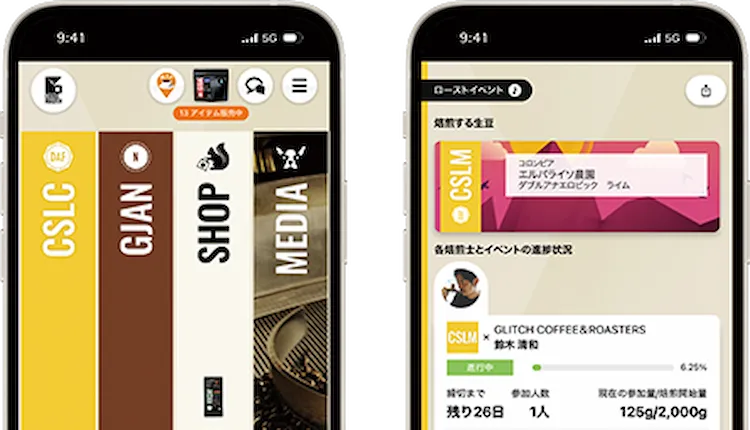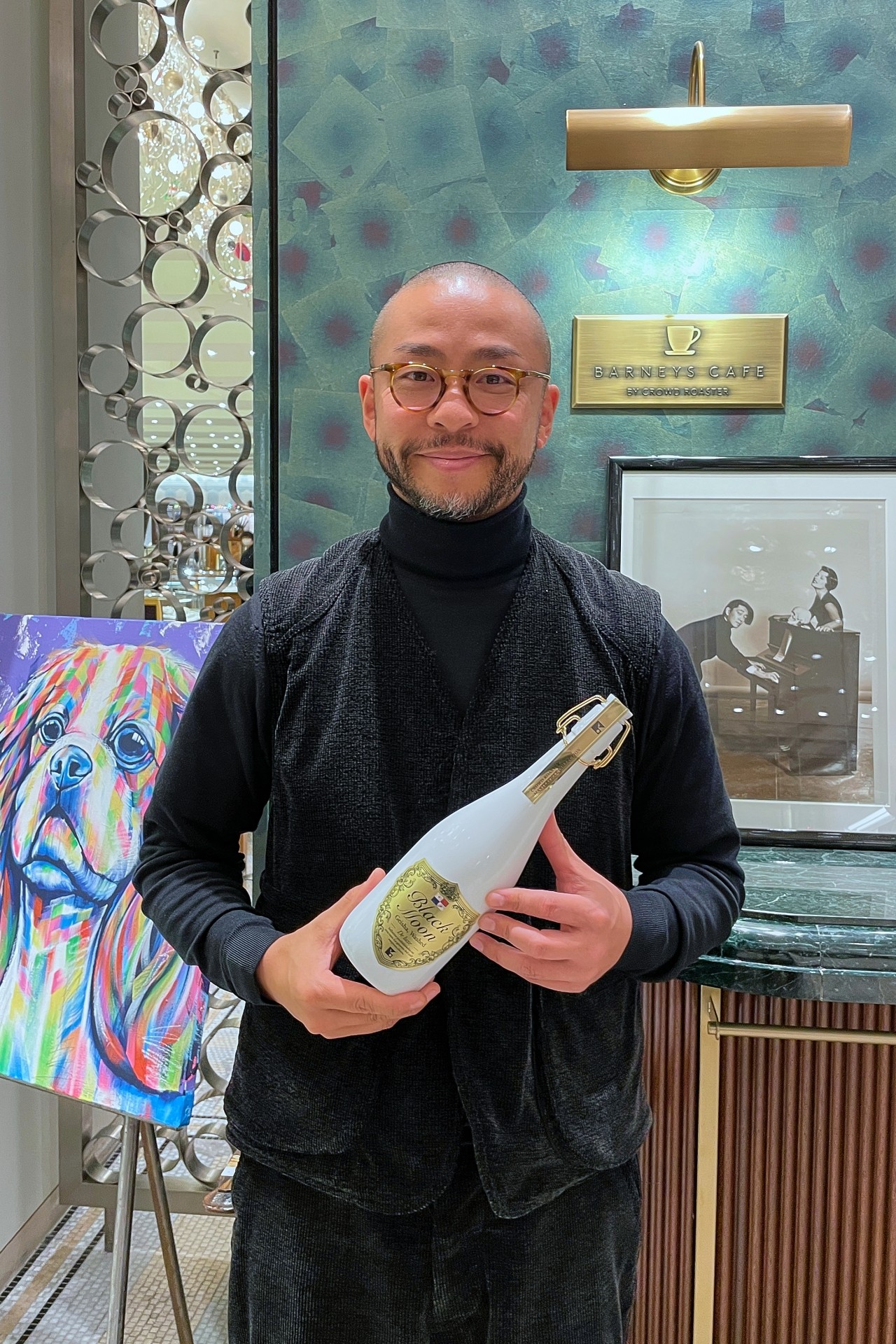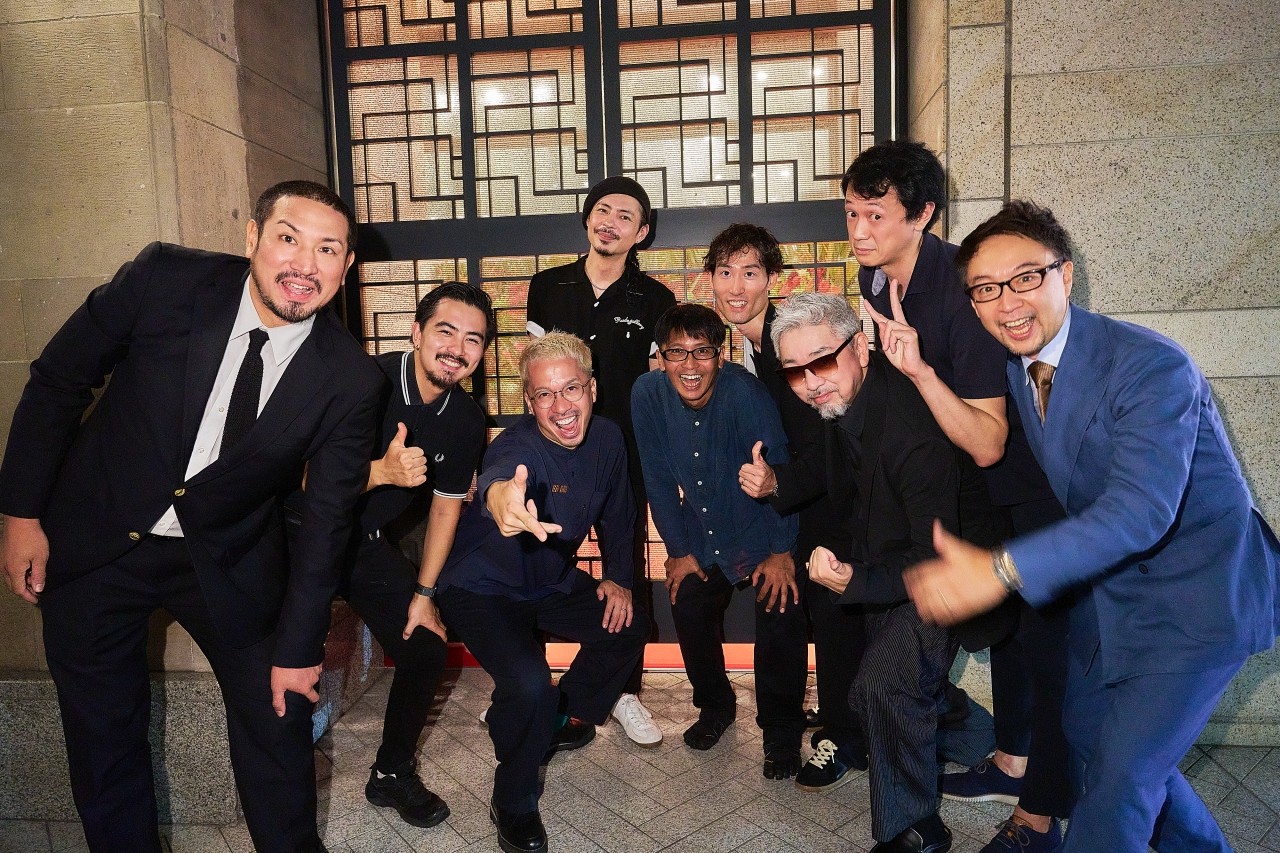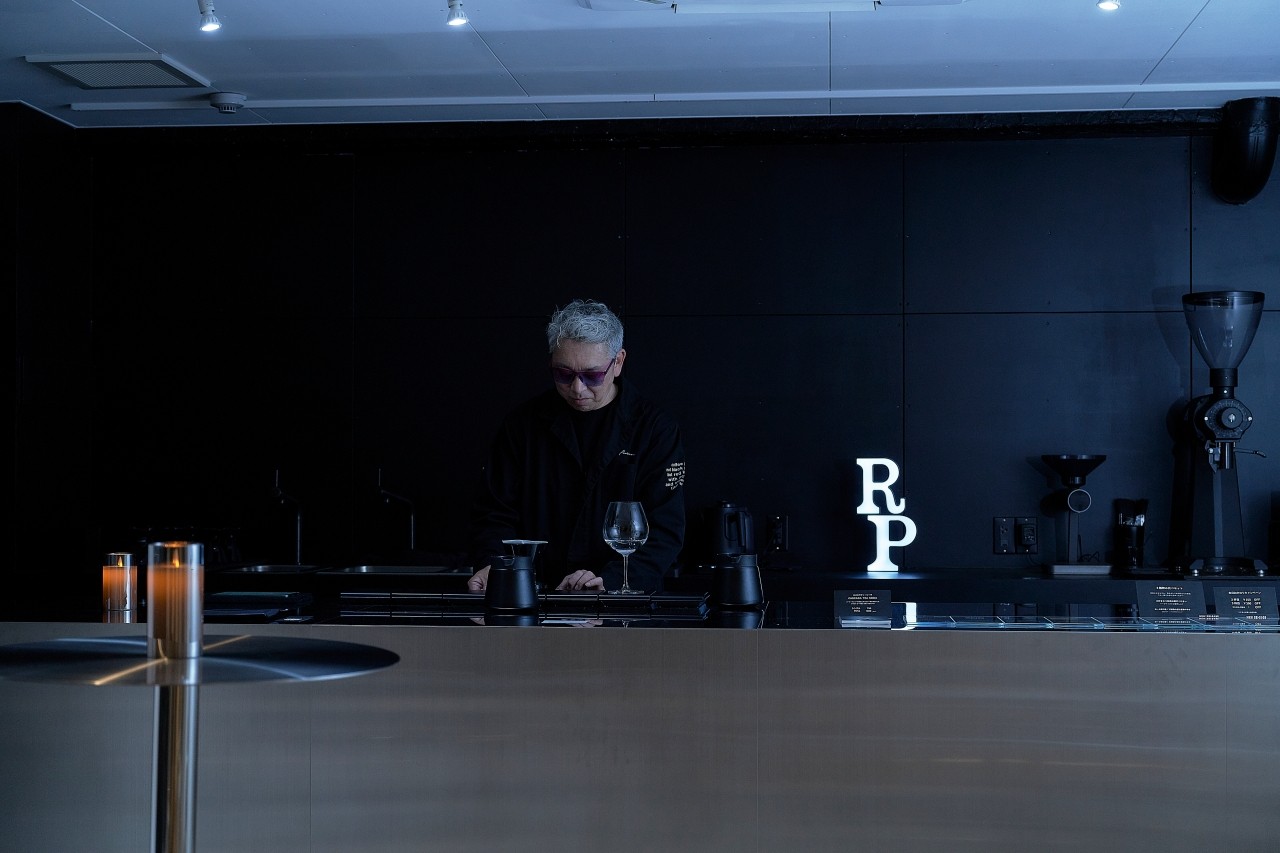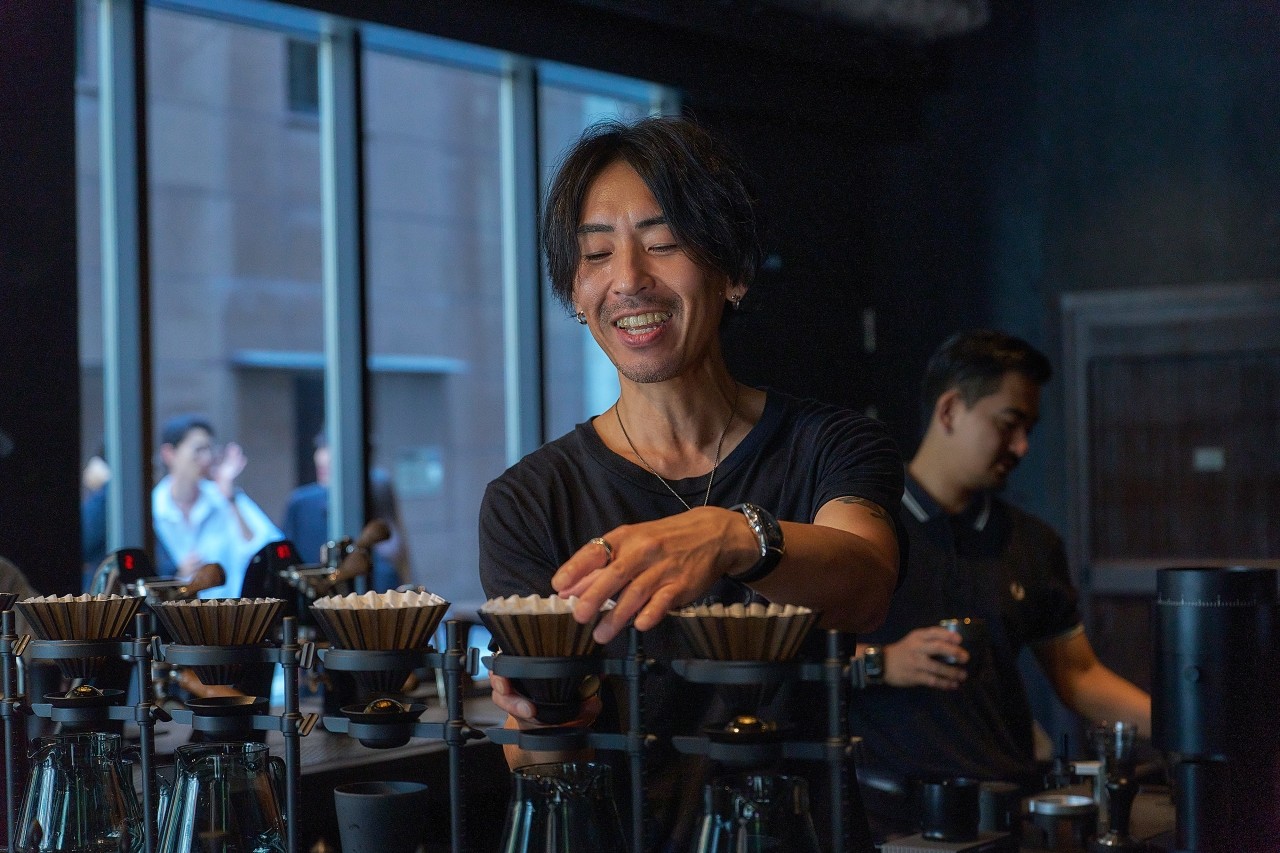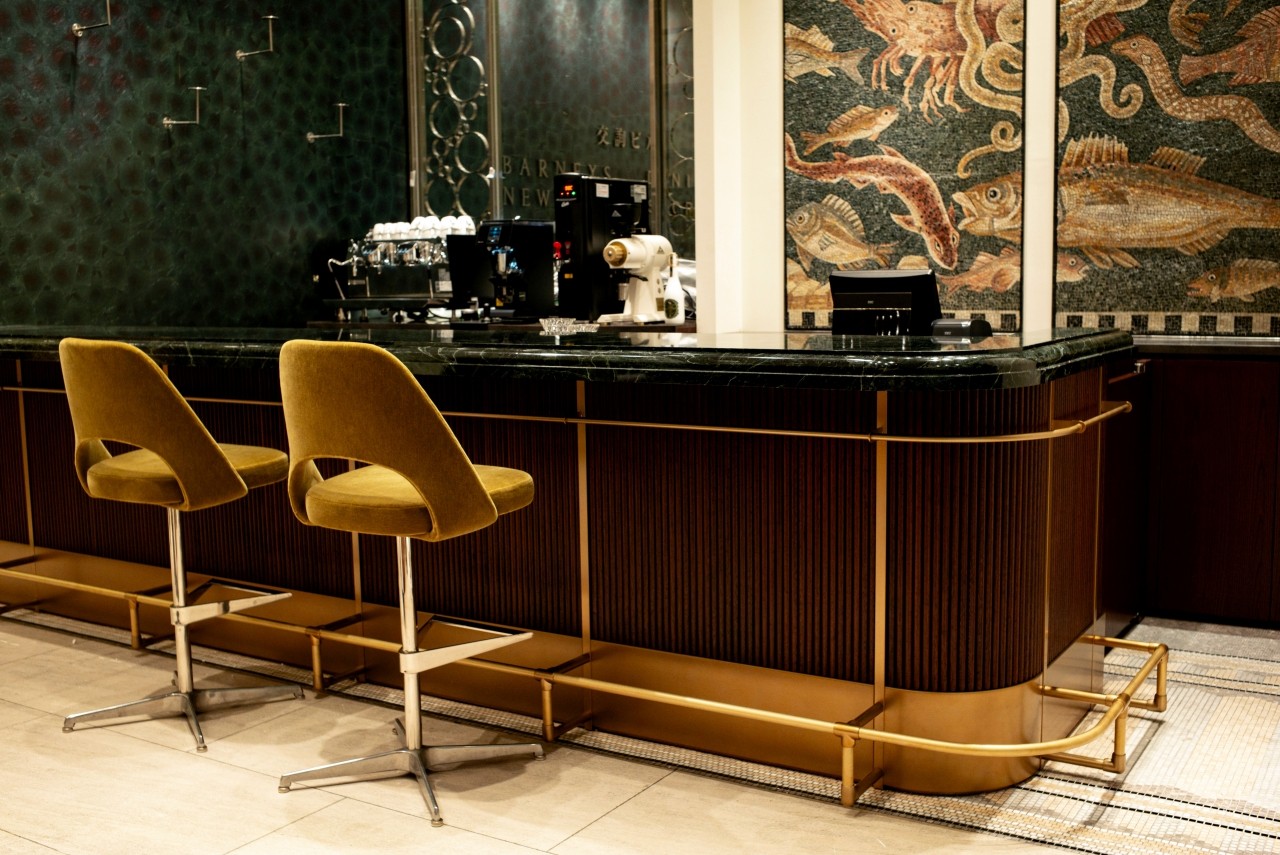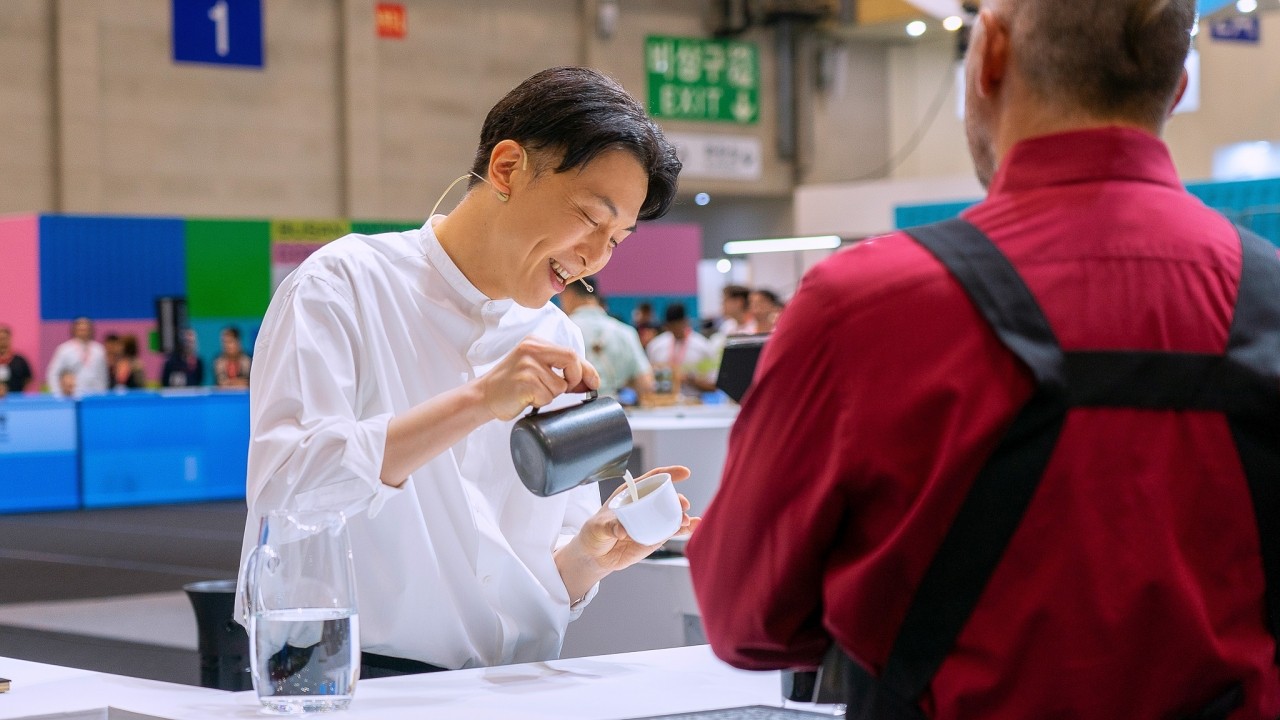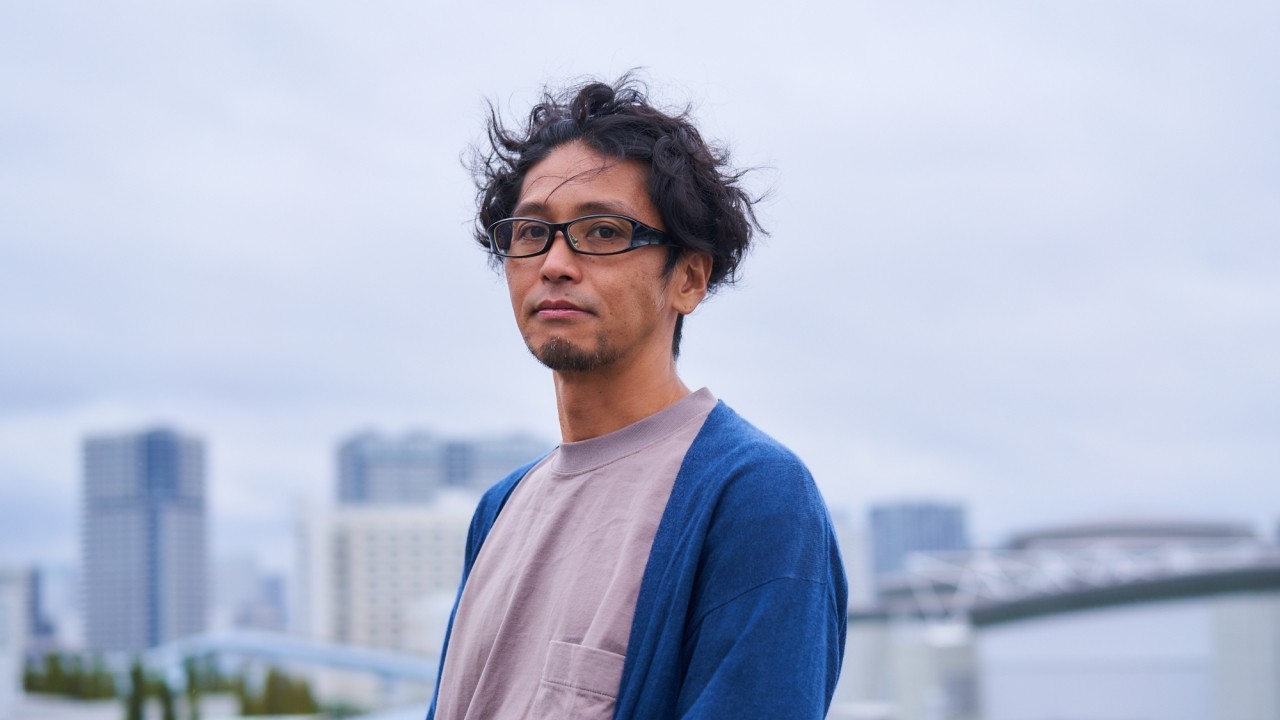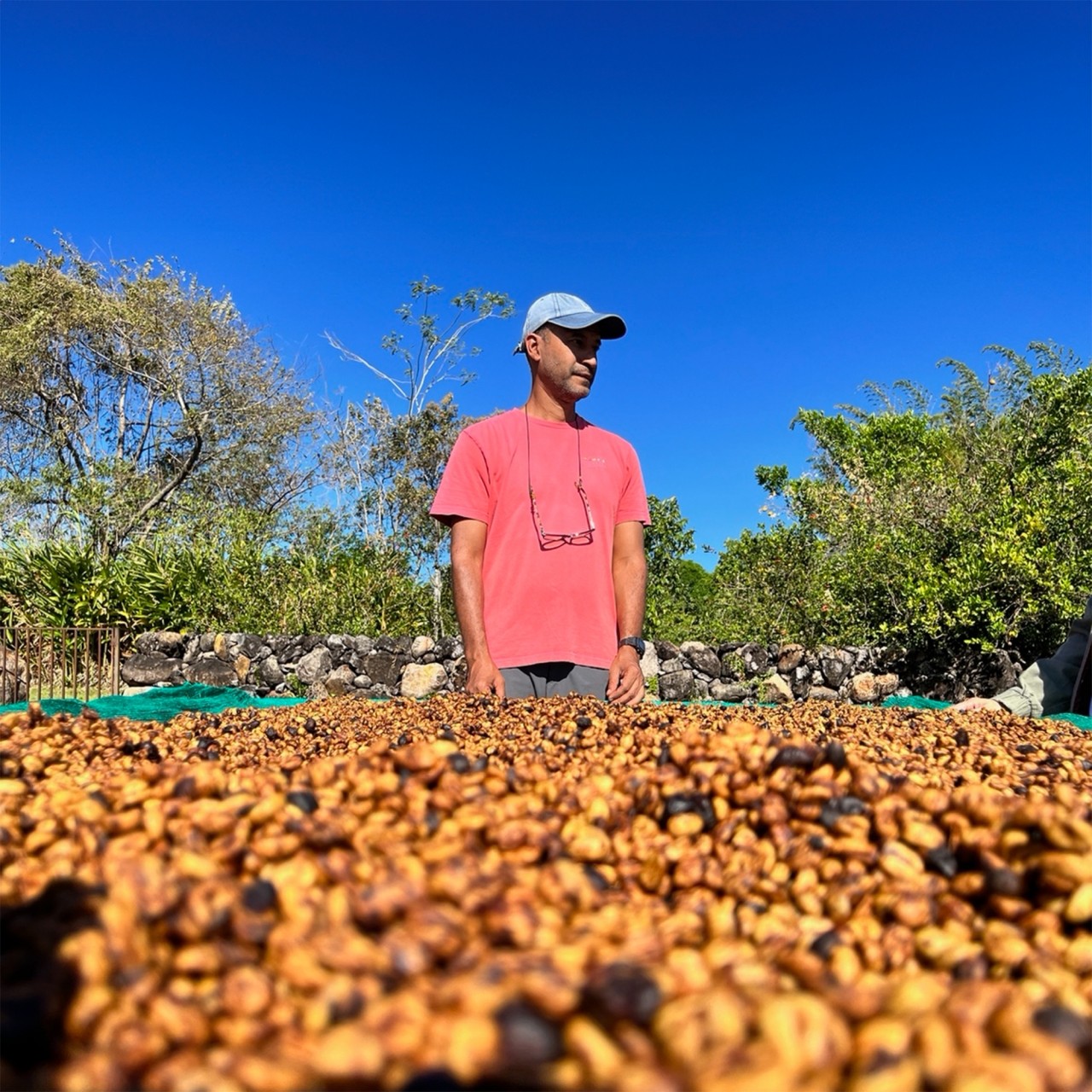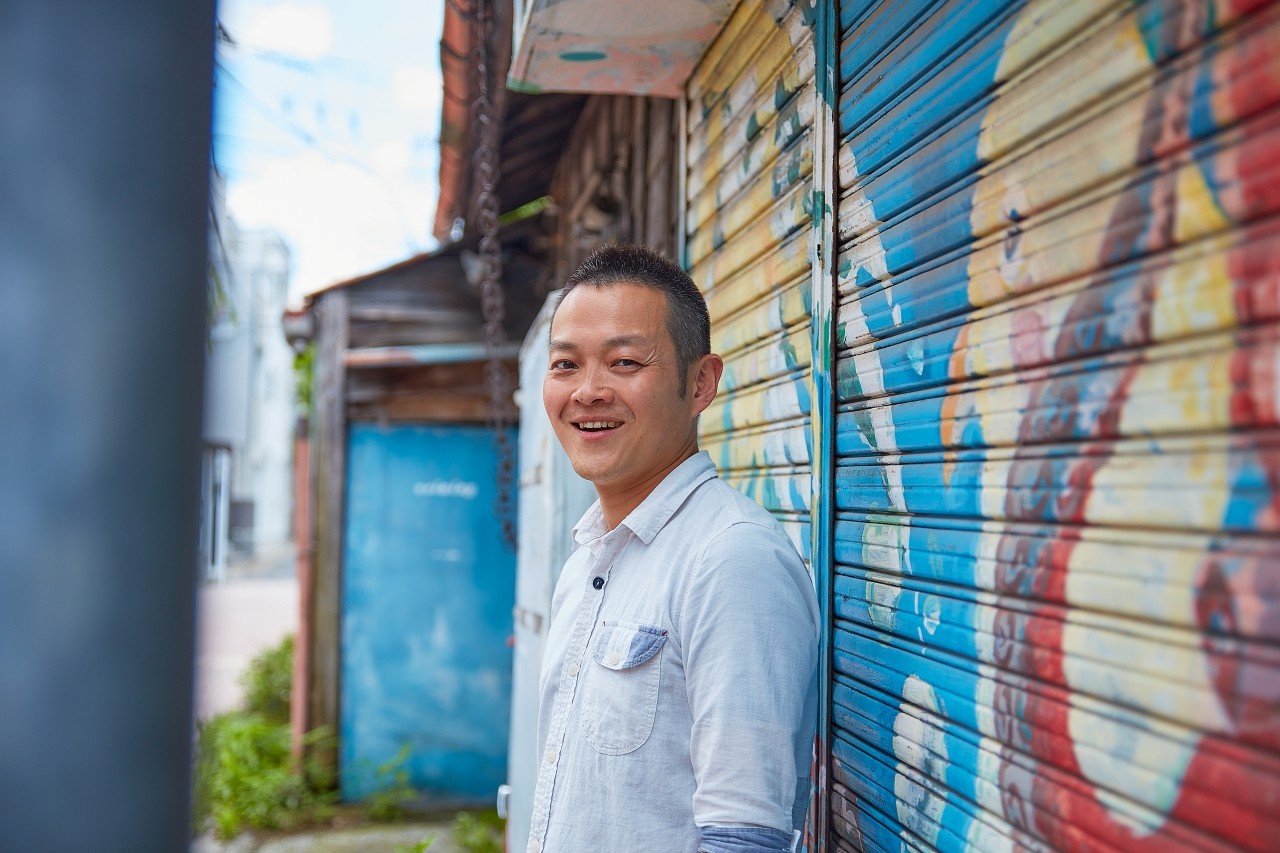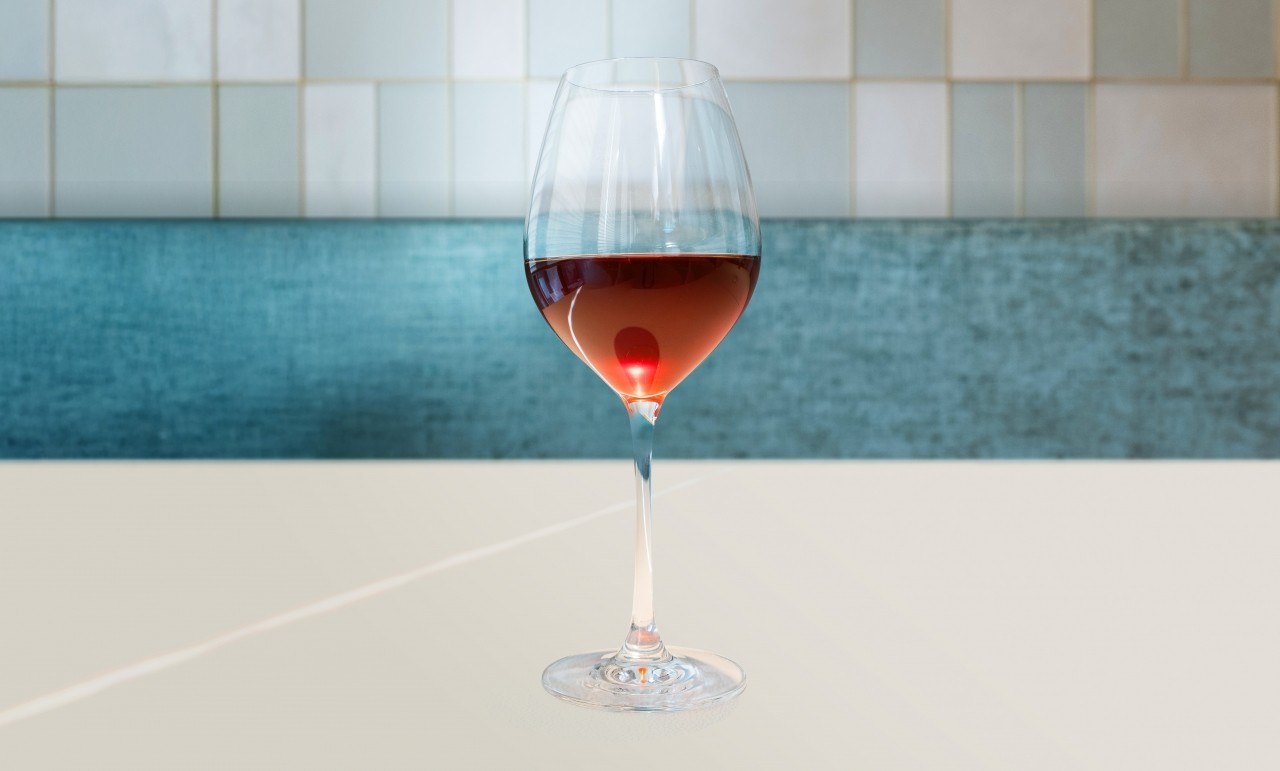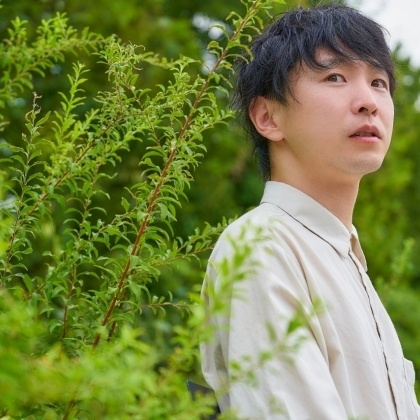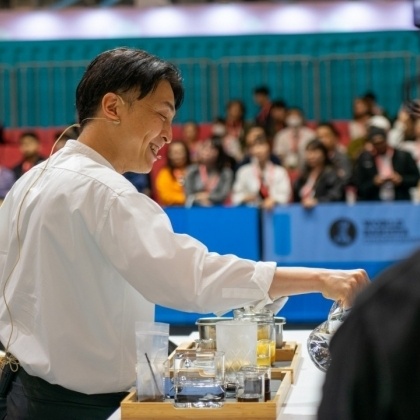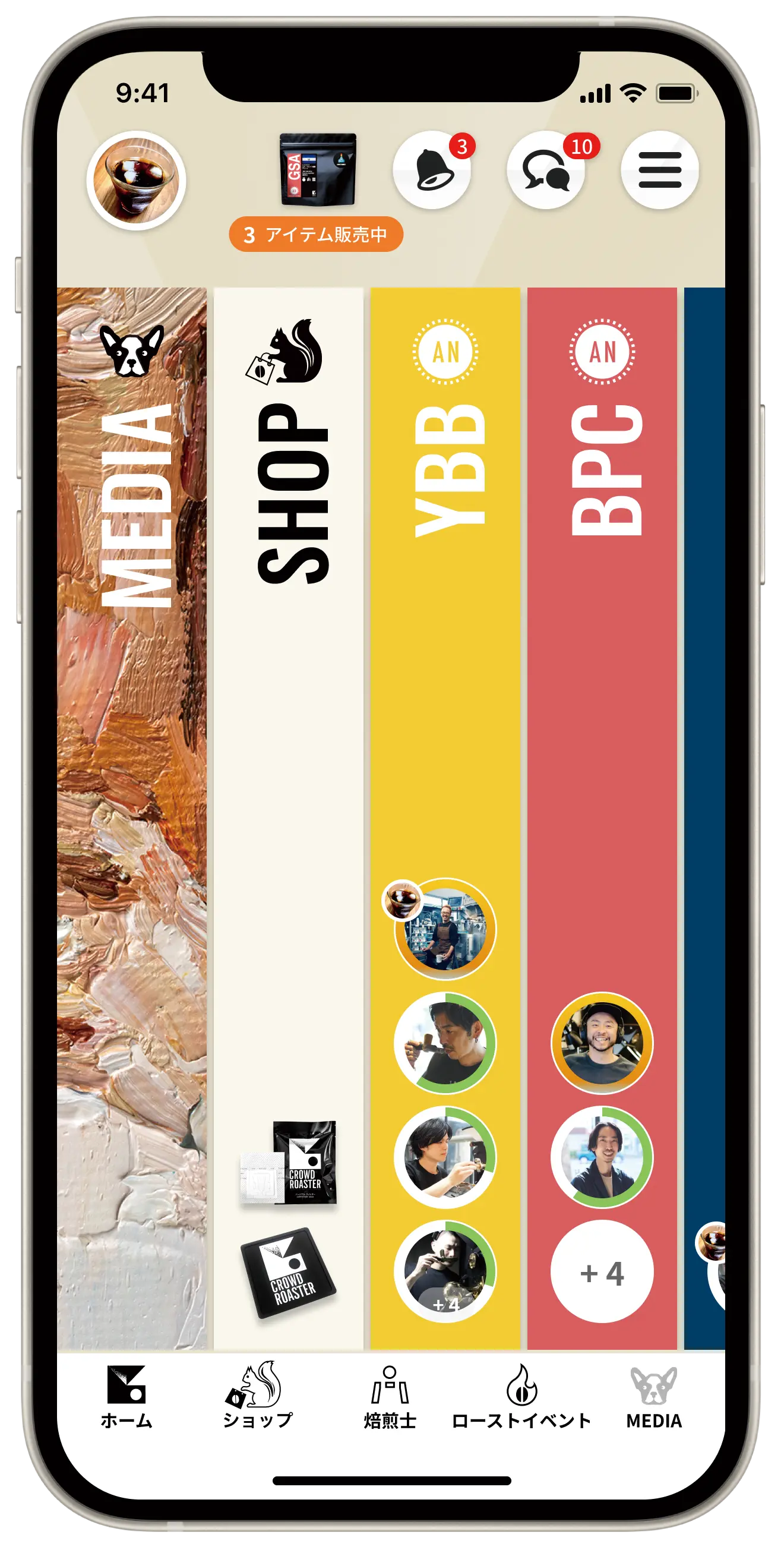"1CCC" preliminary cupping undercover report: 6 finalists for the 2024 tournament have been decided! [Special feature: 1ST CRACK COFFEE CHALLENGE 2024]
The preliminary cupping for the 1ST CRACK COFFEE CHALLENGE (1CCC), a roasting competition aimed at discovering and nurturing young roasters under the age of 35, was held at Ajinomoto AGF Co., Ltd. on Friday, July 26, 2024.
This time, CROWD ROASTER had the opportunity to cover the half-day preliminary cupping. We would like to introduce the roasting profiles of the competition sample beans, which have not been released anywhere else, the evaluations of the judges, and the most interesting fact about the six who advanced to the finals.
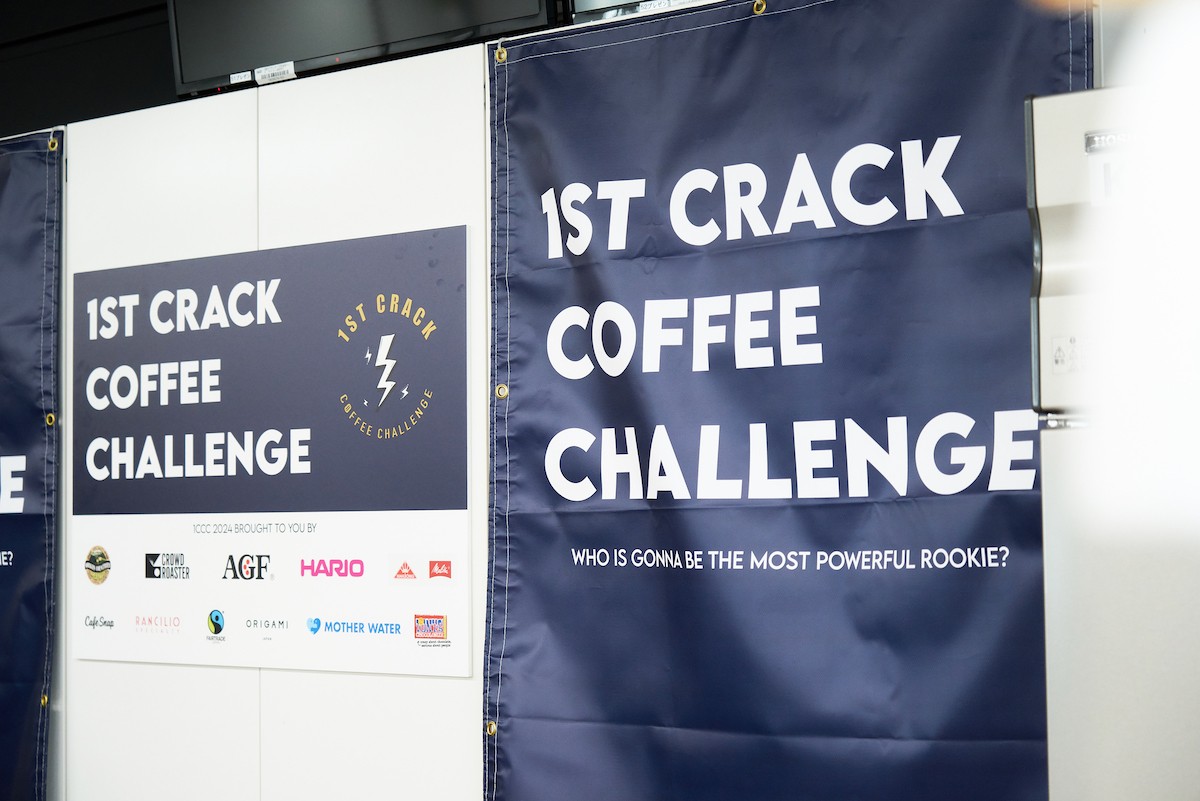
mamepolepole Nakamura 's sample beans for the competition, testing the skills of the participants.
The judges for the 2024 competition were Naoko Kidota, a roaster/Q grader for STARBUCKS JAPAN, Ikko Tenma, a roaster at Shinsaibashi Roastery who was the 2023 JCRC (Japan Coffee Roasting Championship) champion, and Ryo Hitomi of Roast Design Coffee who serves as the JCRC's Japan representative trainer.
This will be Hitomi 's third consecutive time as a judge for "1CCC" since the first tournament, Kidota's second time after 2023, and Tenma's first time.
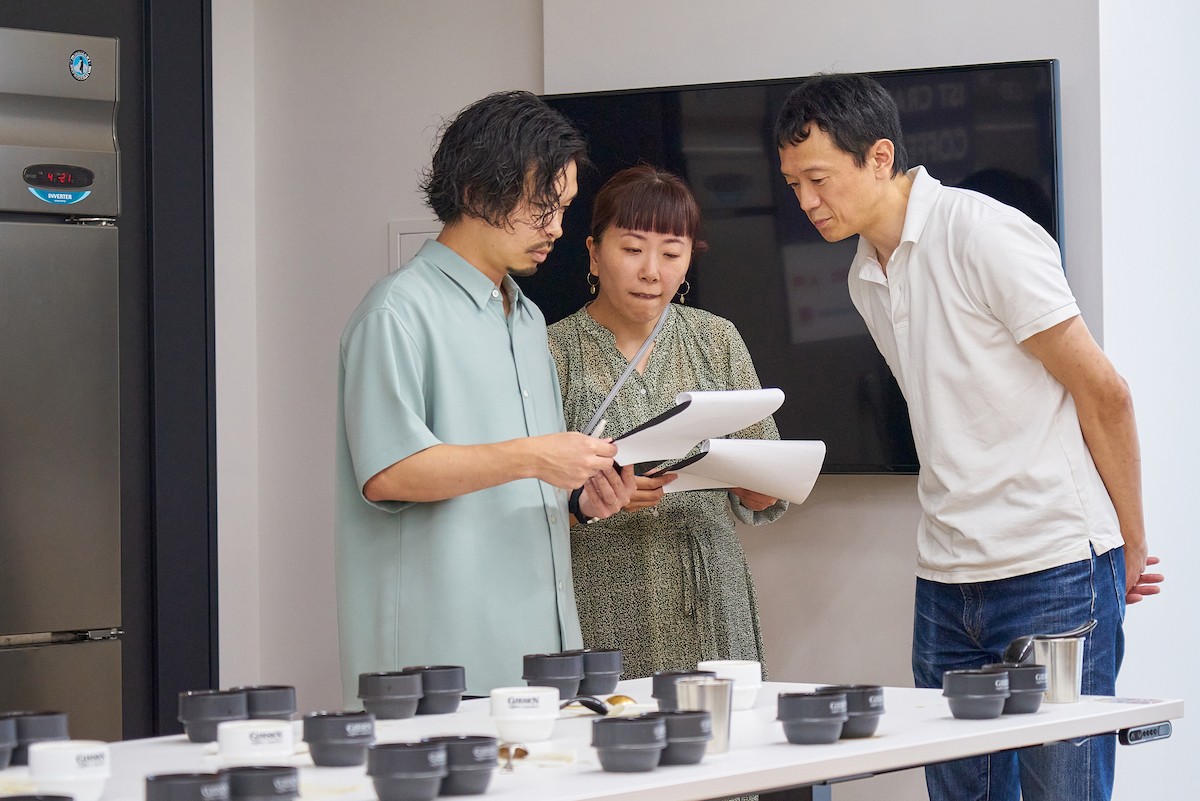
From left: Tenma, Kidota, Hitomi
This year's competition was filled to capacity with 100 participants. In the preliminary round, which was a competition of roasting techniques, each participant was given 3kg of "competition green beans" and 30g of "competition sample beans." Participants were then asked to cup the "competition sample beans," capture the characteristics of the roast, and devise a roasting profile.
It's not enough to simply roast what you consider to be "delicious coffee"; you're evaluated on how close you can roast the coffee to the specific beans, so pure roasting skill is required.
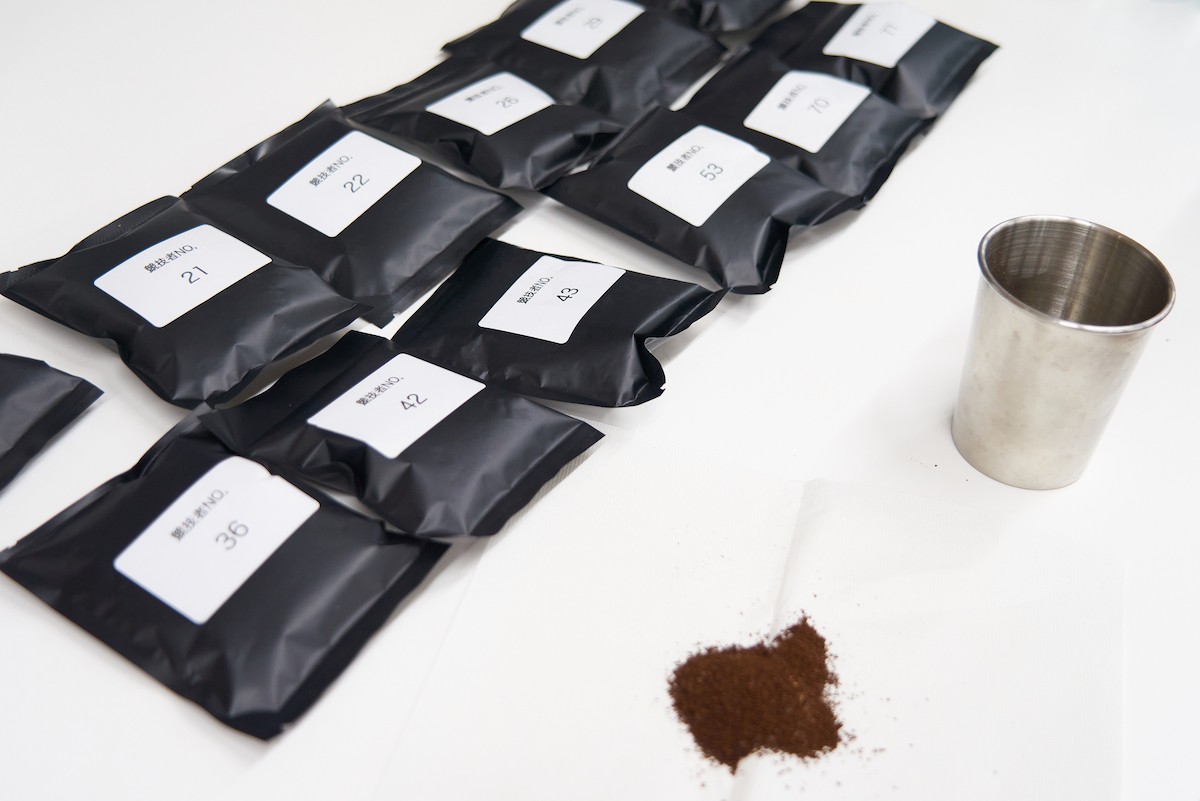
Roasted beans from the 12 selected people
The person in charge of the sample beans for the competition was Yoshiyuki Nakamura of mamepolepole in Okinawa. He was the runner-up at the 2018 World Coffee Roasting Championship (WCRC) and won fourth place at the 2023 competition. By the way, CROWD ROASTER is in charge of providing the sample beans for the competition and selecting the roasters.
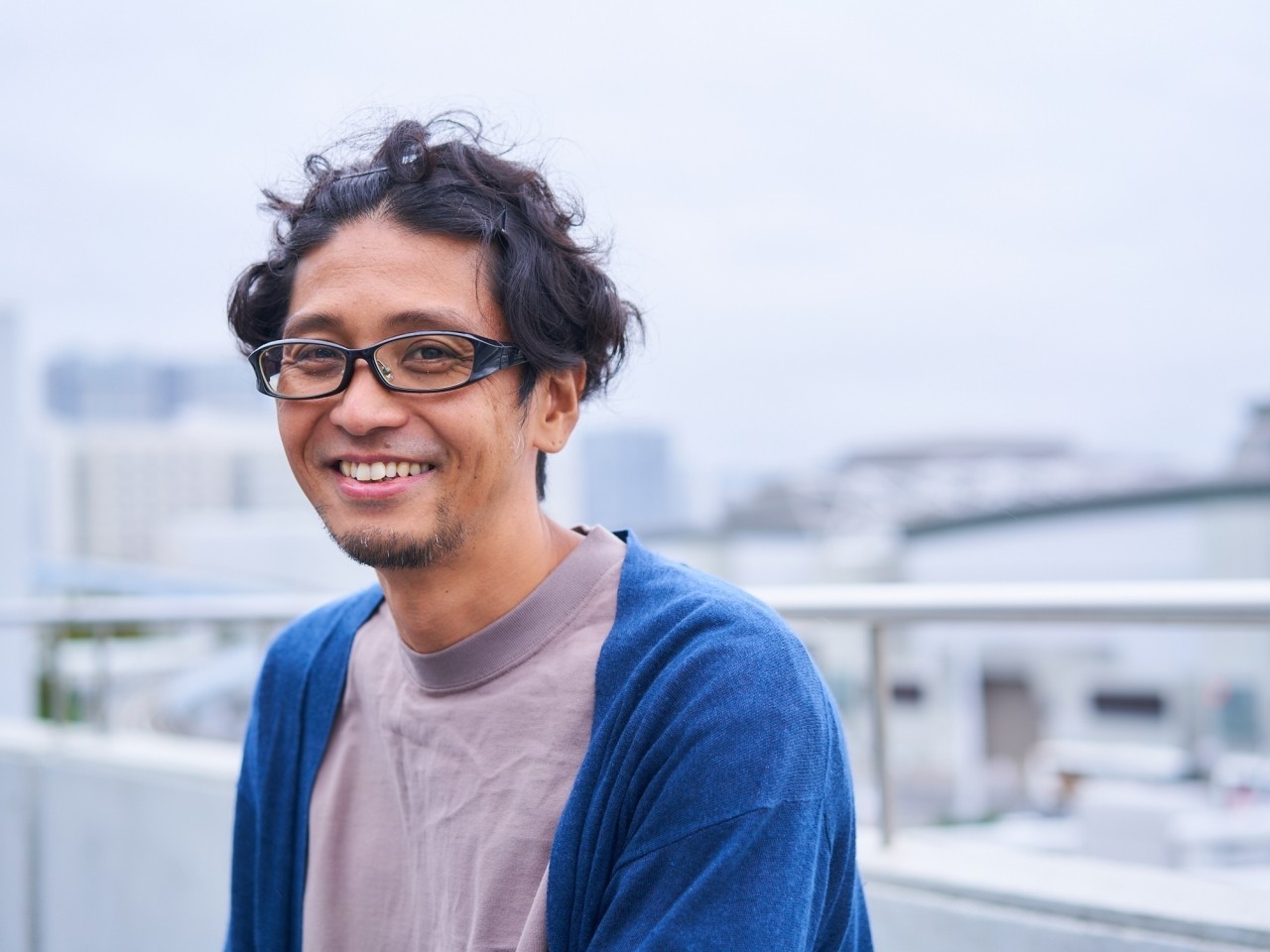
This time, we will be introducing Nakamura 's roasting profile in the CROWD ROASTER media.
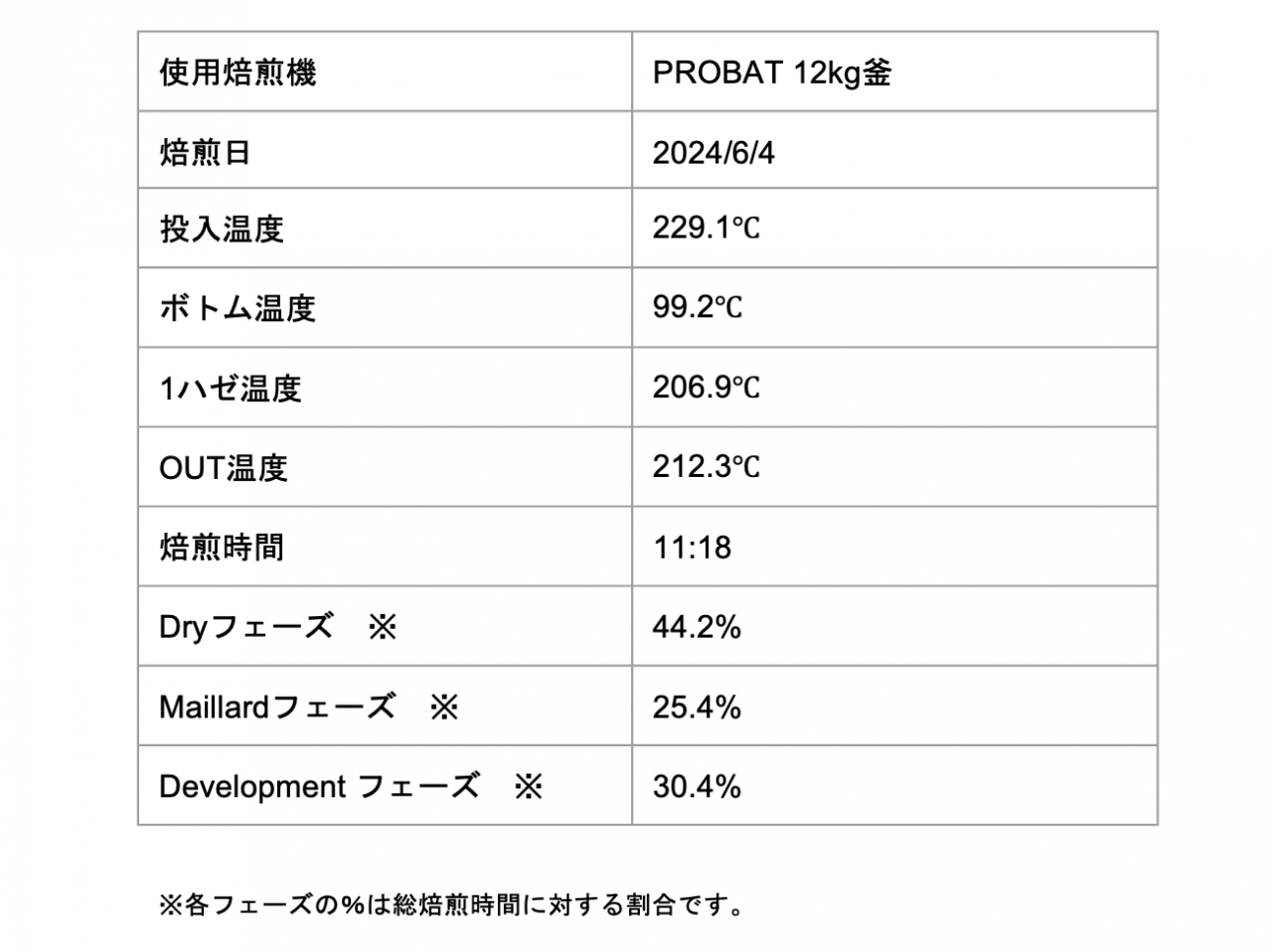
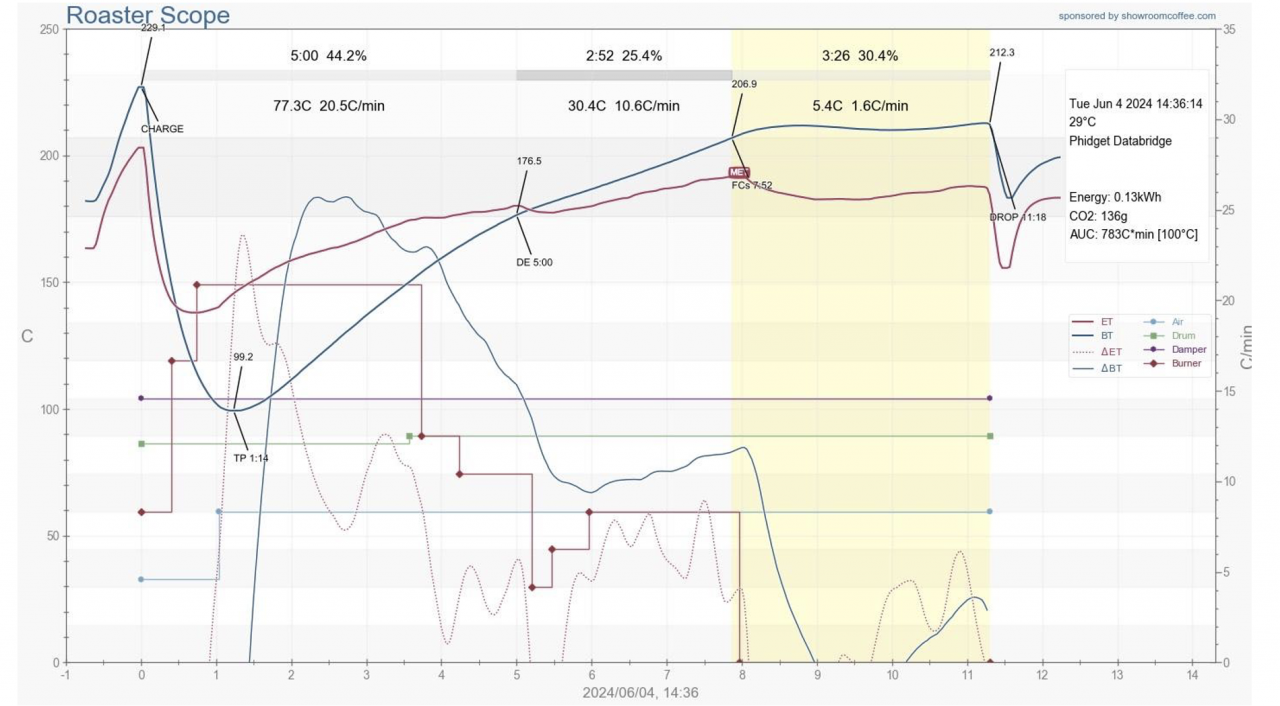
The following is a comment from Nakamura , who was in charge of roasting.
"The defining characteristic of baked goods is the sour, uninhibited taste.
It feels like it mutes the characteristics of the region where the over is produced.
I think you can sense both of these things.
The aim was to sense these characteristics through cupping and then create them through roasting. This challenge bean required both cupping skills and an understanding of roasting to create this characteristic!
What did you think?
Were you worried?
Did you enjoy it?
I look forward to the results.
The time you spend facing this challenge will be a treasure, whether you win or lose!
Everyone, including me, is still only halfway there.
Let's keep growing and making delicious coffee!"
In fact, when CROWD ROASTER and Nakamura discussed the sample roast for the preliminary round beforehand, we thought, "This time, we want to try a roast that we don't usually aim for, to measure our roasting and cupping skills." The fact that we were able to actually achieve this was due to the roasting skills of Nakamura , who executed the roasting plan.
We also asked the three judges in advance about their impressions of Nakamura 's competition sample beans.
Tenma
" Nakamura 's sample roast was Shin opposite of the elusive beans, it was a bean that was easy to grasp. As Nakamura intended, I think that you can't roast this bean unless you have a proper understanding of cupping skills and roasting techniques, and you understand what kind of roasting process you need to go through to get to that point."
Hitomi
"Rather than bringing out a strong individuality, it's a more homogenized flavor. If you look at the roast profile, most people today probably wouldn't want to roast in a certain way, so this is a somewhat challenging roasting method that tests the courage of those who want to take a step into that direction."
Kidota-san
"It was a coffee that clearly showed the characteristics of its region. Both the positive and negative aspects were clearly visible, and it was fun for me as a roaster to drink it while wondering how it was roasted, and it also felt like I was being tested."
You could say it's a challenge from Nakamura to young roasters, and also a word of encouragement.
Precision of aroma analysis by gas chromatography.
The submitted beans were analyzed using a gas chromatograph at Ajinomoto AGF Co., Ltd., and the 12 contestants who had the closest score to Nakamura 's competition sample beans were pre-selected.
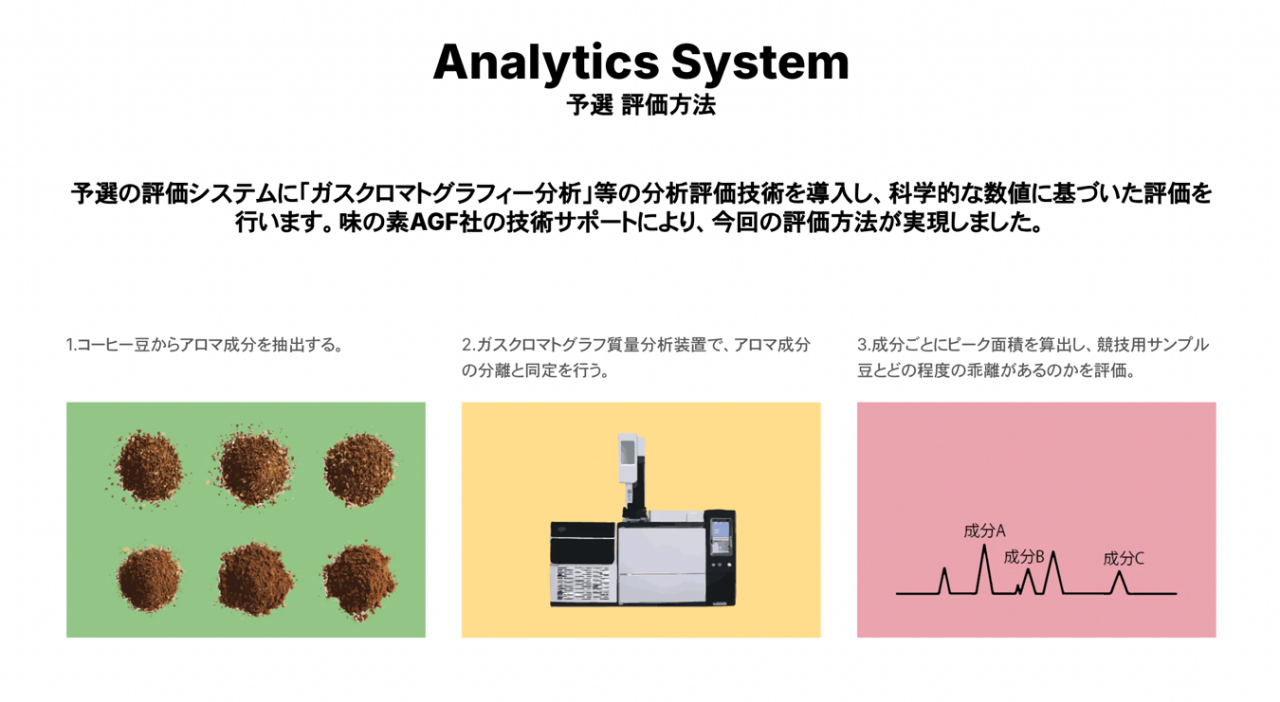
Finally, on this day, the beans of the 12 winners were actually cupped, and the field was narrowed down to the 6 finalists. The judges, who have expert roasting and cupping skills, will give a strict evaluation and decide whether they will advance to the finals in September.
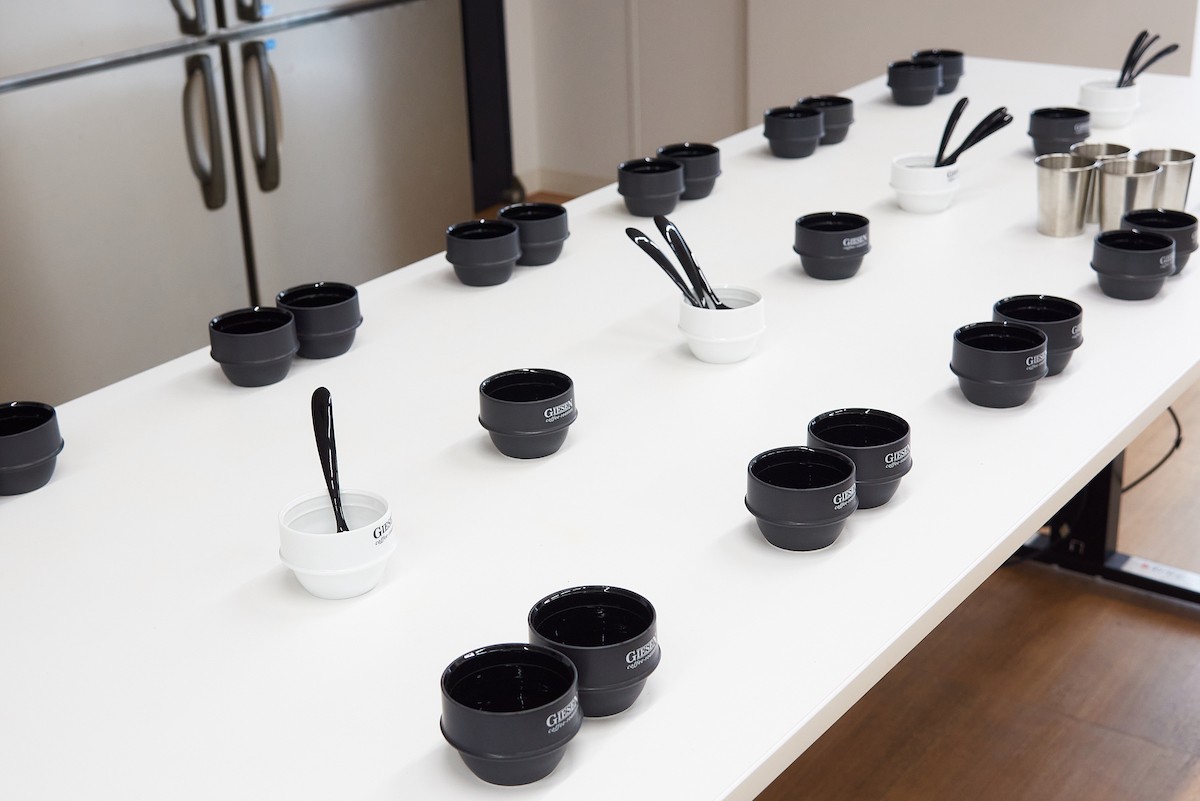
The 12 cups were chosen. The numbers and names of the participants were kept secret until the very end.
The evaluation method was the same as in a regular cupping test, with Nakamura 's competition sample beans and the coffee of the 12 judges brewed two cups each under the same conditions. The judges evaluated the coffees along five criteria (Flavor, Aftertaste, Acidity, Body, and Sweetness).
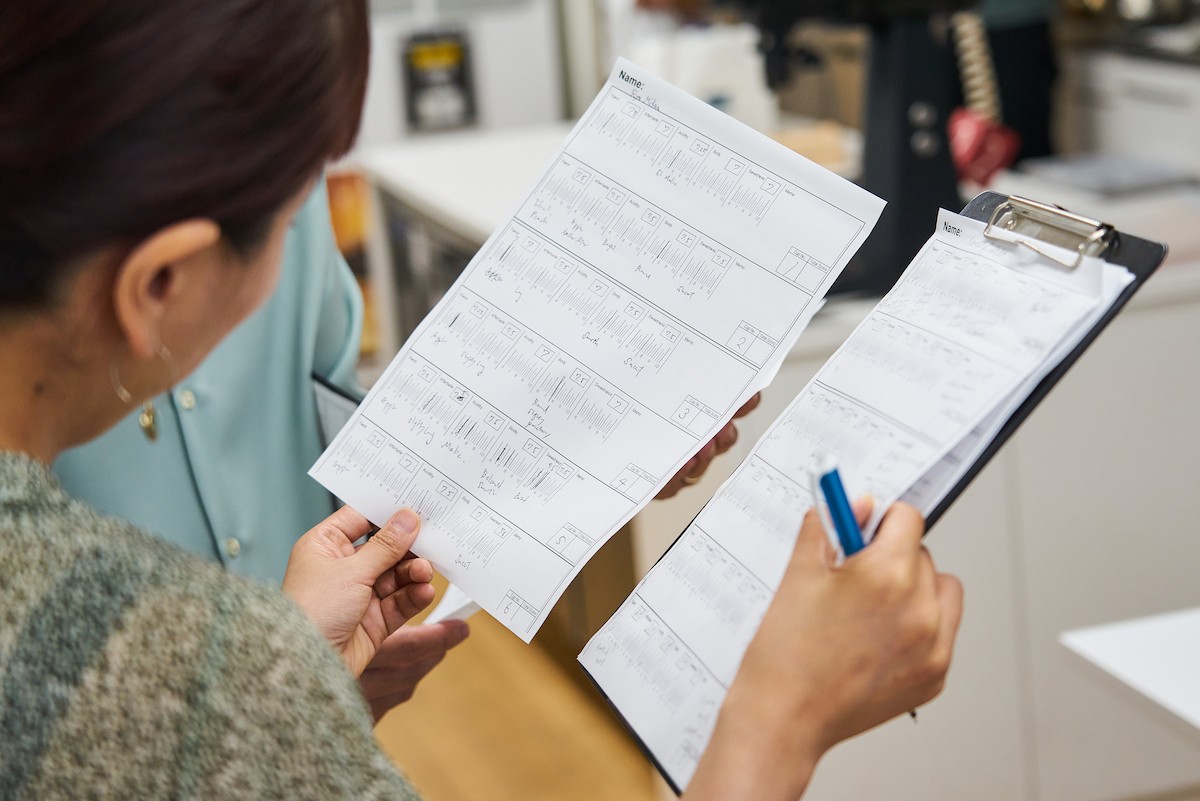
The evaluation criteria are unique to 1CCC and are based on criteria used in other roasting competitions.
Roasting evaluation by 12 people
The cupping lasted for an hour, and the judges filled out their score sheets while repeatedly checking each one. The judges were often indecisive, and would sometimes wait for the cups to cool before checking them again, taking their time in assessing the cups.
After all the evaluations were completed and we were waiting for the results to be tallied, we asked the participants about their overall impressions of the cupping at this tournament.
Tenma
"My impression was that the coffees were all similar overall. There were some individual differences, but it seemed like the 12 cups were carefully analyzed and left over. It was my first time drinking the results of an aroma analysis, but there weren't many surprises."
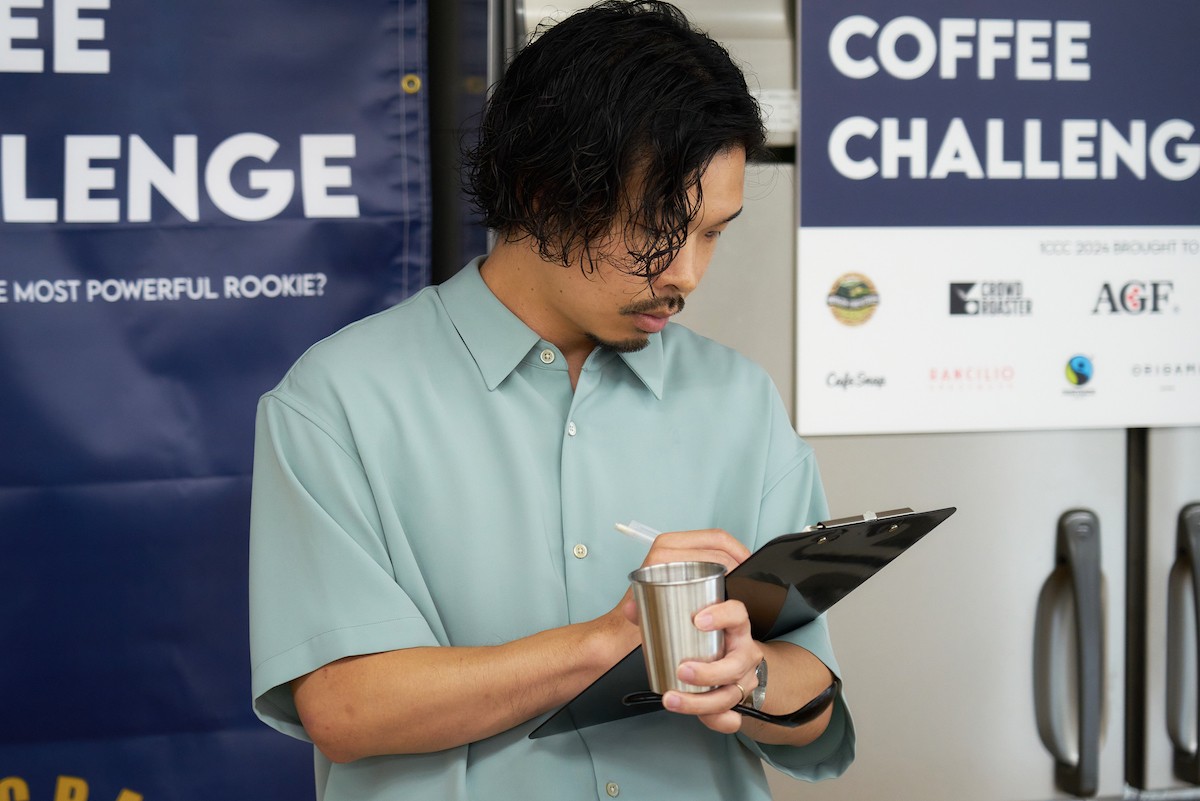
Kidota-san
" Nakamura 's cup had both distinct defects (negative flavors that occur during roasting) and positive flavors clearly visible, so I think it was easy to see which of the various points Nakamura was trying to bring out, the participants were aiming for.
However, whether or not you can intentionally recreate that defect is another matter. In that sense, I felt that there were many participants with cupping skills this time."
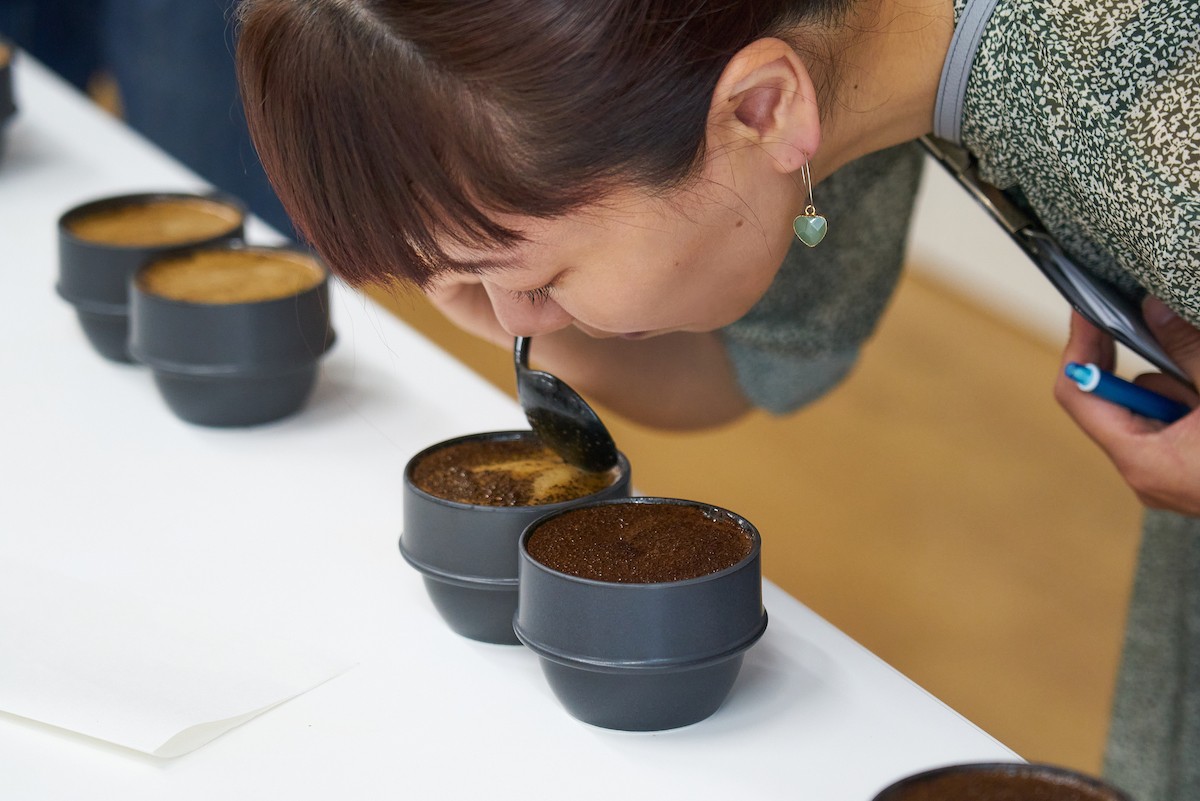
Hitomi
"I've been to all three competitions, and this year's sample roast was the darkest. Gas chromatography only reveals gas, but in reality, differences emerge in the texture of the ingredients and the strength of the acidity. I think there are many things that can be said about what makes a coffee "coffee-like."
Of the 12 roasters who were cupped in the preliminary round, some had similar acidity (to the sample beans) and some had similar textures. What that "closeness" is is up to each individual roaster, but it's an interesting endeavor to roast beans that are similar to the sample beans.
Also, everyone has a different roasting machine, but to create the flavor Nakamura intended, it should be possible to create something similar using different approaches, not just one. So I think this is a competition where everyone can make use of their own ingenuity."
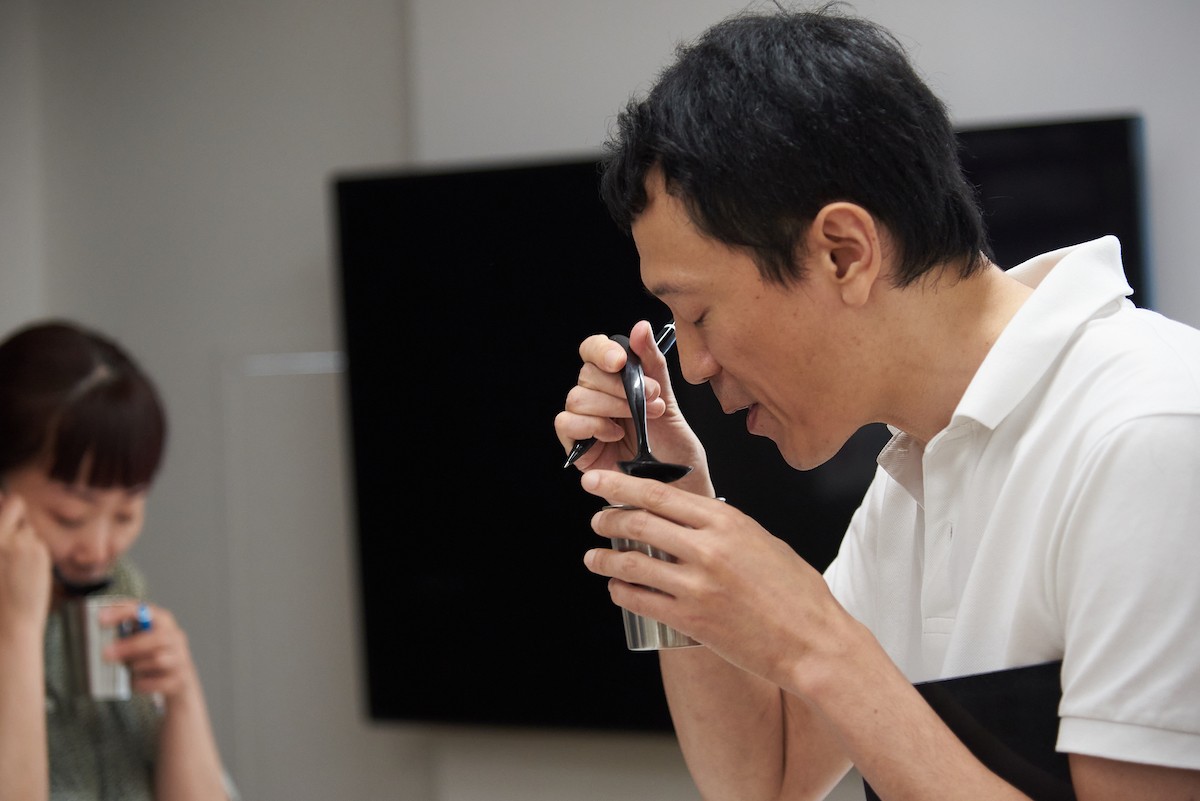
Ultimately, 12 contestants were selected based on gas chromatography, and the six finalists with the highest scores based on the judges' evaluation were announced on Instagram Live.
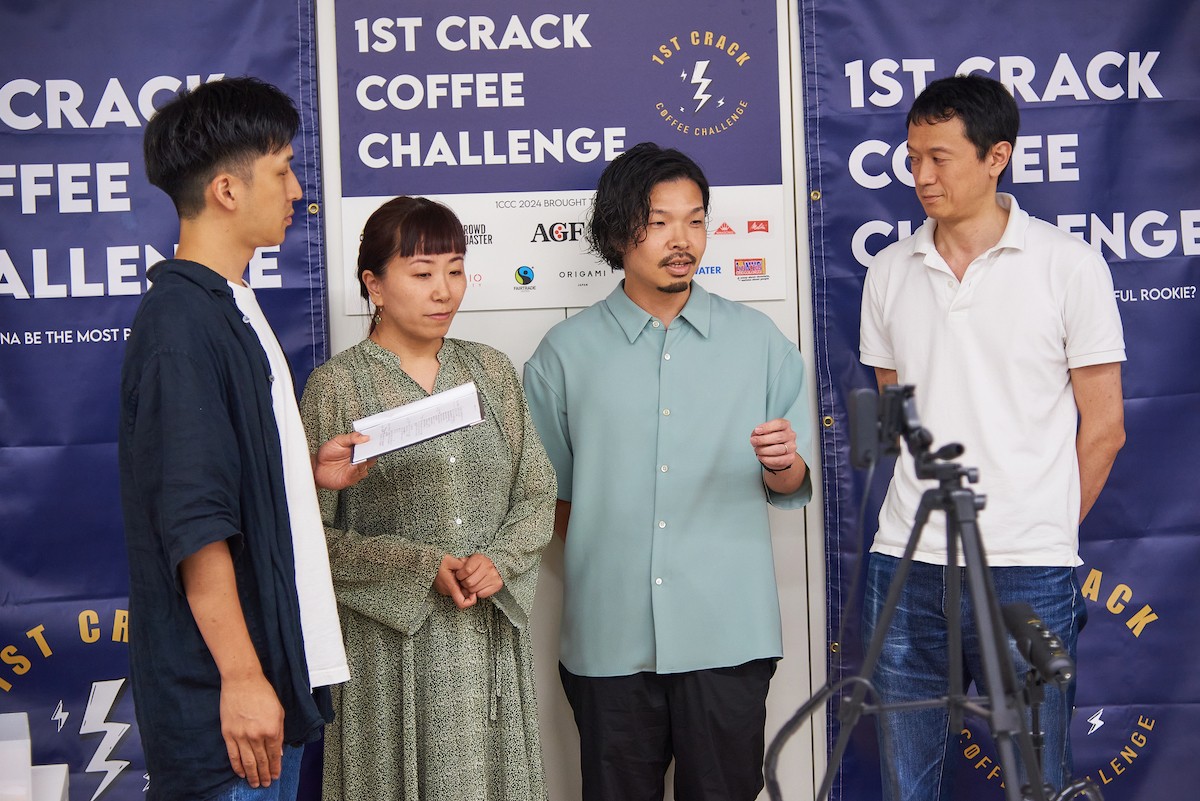
The finalists will be announced on the same day on "1CCC" Instagram Live.
In "1CCC", the results of the aroma analysis are later fed back to each participant, so even those who did not advance to the finals have the opportunity to reflect on what they lacked in their roasting. Another feature of the "1CCC" competition is that participating in the preliminary rounds can be an opportunity for young roasters to grow.
Preliminary results (★ indicates finalists)
13 Nagaji Ryuju (Isen Town Office, Economic Affairs Division)
twenty one Norihiro Takami ( TAKAMURA COFFEE ROASTERS )
22★ Yoshikazu Kuroda (Ariowl Coffee)
26★ Koki Hosoi (Specialty Coffee Ao)
29 Sayuri Tokimatsu (Takamura Corporation)
34 Junya Kobayashi (SOBA COFFEE ROASTER)
36★ Yurika Teruya (individual)
42★ Yoshikazu Nishikawa (Senton Coffee)
43 Riku Aoki (COFFEENOKI, University of Agriculture)
53★ Daiki Ikeda (Geshary Coffee Hibiya store)
70 Haruto Fukui (Cafe kopi kan)
77★ Keita Tatsuno (THE ROASTERS)
Overall Review: What the judges thought was fun about "1CCC"
Finally, after the cupping session, we asked the three participants for their overall feedback on the tournament.
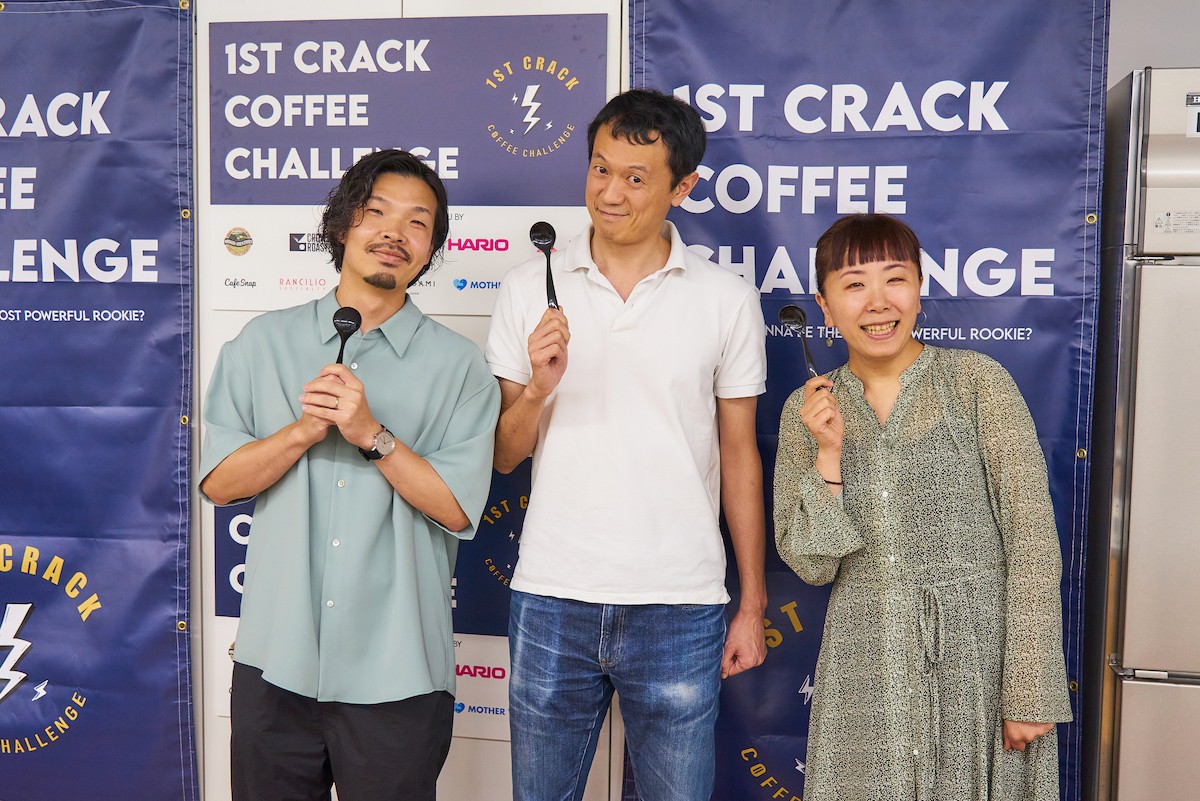
Hitomi
"In the first competition, all the beans were cupped from the first round of judging. Because the aromatic components are the most important element in coffee, it was an interesting attempt to use a machine to analyze them. (Evaluation by cupping) would have revealed the skill and sensibility of the person, but a machine is just a machine. I think it was a fair competition for entries."
Kidota-san
"In non-competitions, the standard is to aim for good coffee, right? But I think this is a very meaningful competition that gives me an opportunity to grow and take on a new challenge from a different perspective to my daily work. I don't think there are many other competitions that combine several elements, such as daily cupping ability, double roasting ability, and how well you understand your own roasting machine."
Tenma
"(1CCC) has a brewing presentation in the finals, which is something you don't see in many other competitions. It also uses aroma analysis, which I think sets it apart. It has the most participants of any competition I know, and the fact that so many people can apply is a great thing for both the competition and the participants. I also think the remaining 12 people are very Hikaru ."
The final competition to decide the No. 1 roaster will be held on September 13th! Half-price coupons available!
Finally, the final stage of "1CCC" will be held on Friday, September 13, 2024. There will be no roasting in the final, but rather a presentation based on a theme and the creation of a welcome drink within the time limit (20 minutes).
The general public is welcome to watch the event (tickets cost 2,000 yen and include one drink), and after the competition there will be a "Barista & Roaster Party" which will feature a DJ, coffee created by the finalists, as well as alcohol, drinks, and snacks.
The final stage of "1CCC" looks set to go beyond the framework of a competition and become a place where coffee lovers can gather and interact with each other. Come and enjoy the moment when a young roaster seizes a new opportunity.
We are also offering a half-price coupon for tickets to the finals to the first 20 people, exclusively to CROWD ROASTER LOUNGE readers. By entering the discount code on the ticket purchasing site below, you can purchase a ticket that normally costs 2,000 yen (including one drink and a coffee for competitors) for half the price, just 1,000 yen, so please take advantage!
Discount code: [ crowdroaster1CCC ]
2024 1CCC Final Stage Overview
Date: Friday, September 13, 2024, 13:00-21:00
Venue: Tokyo Culture Culture (4F cocoti SHIBUYA, 1-23-16 Shibuya, Shibuya-ku)
Price: 2,000 yen (2024 Games viewing ticket [one drink included])
schedule:
13:00 Doors open
14:00 Competition start
18:00 Barista & Roaster Party
20:00 Announcement of results/awards
21:00 Closing
*The schedule for the final competition is subject to slight changes.
"1CCC" ticket purchase site (Peatix)
If you want to enjoy coffee more deeply
" CROWD ROASTER APP"
Manabu at CROWD ROASTER LOUNGE
・Push notifications for article updates・Full of original articles exclusive to CROWD ROASTER
・Direct links to detailed information about green beans and roasters
App-only features
- Choose green beans and roasters to create and participate in roasting events・CROWD ROASTER SHOP: Everything from beans to equipment is readily available
・GPS-linked coffee map function
